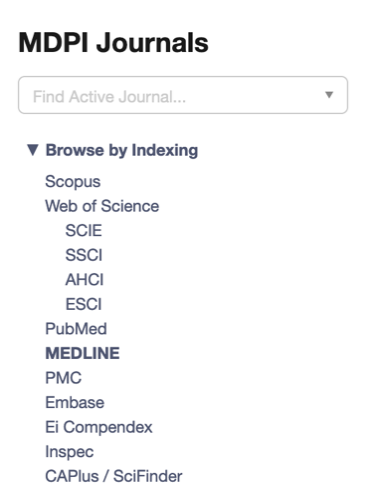
Journal Menu
► ▼ Journal Menu-
- Batteries Home
- Aims & Scope
- Editorial Board
- Reviewer Board
- Topical Advisory Panel
- Instructions for Authors
- Special Issues
- Topics
- Sections & Collections
- Article Processing Charge
- Indexing & Archiving
- Editor’s Choice Articles
- Most Cited & Viewed
- Journal Statistics
- Journal History
- Journal Awards
- Society Collaborations
- Conferences
- Editorial Office
- 10th Anniversary
Journal Browser
► ▼ Journal BrowserNeed Help?
Announcements
7 August 2024
MDPI Insights: The CEO's Letter #14 - New Headquarters, Marketing, Poland

Welcome to the MDPI Insights: The CEO's Letter.
In these monthly letters, I will showcase two key aspects of our work at MDPI: our commitment to empowering researchers and our determination to facilitating open scientific exchange.
Opening Thoughts
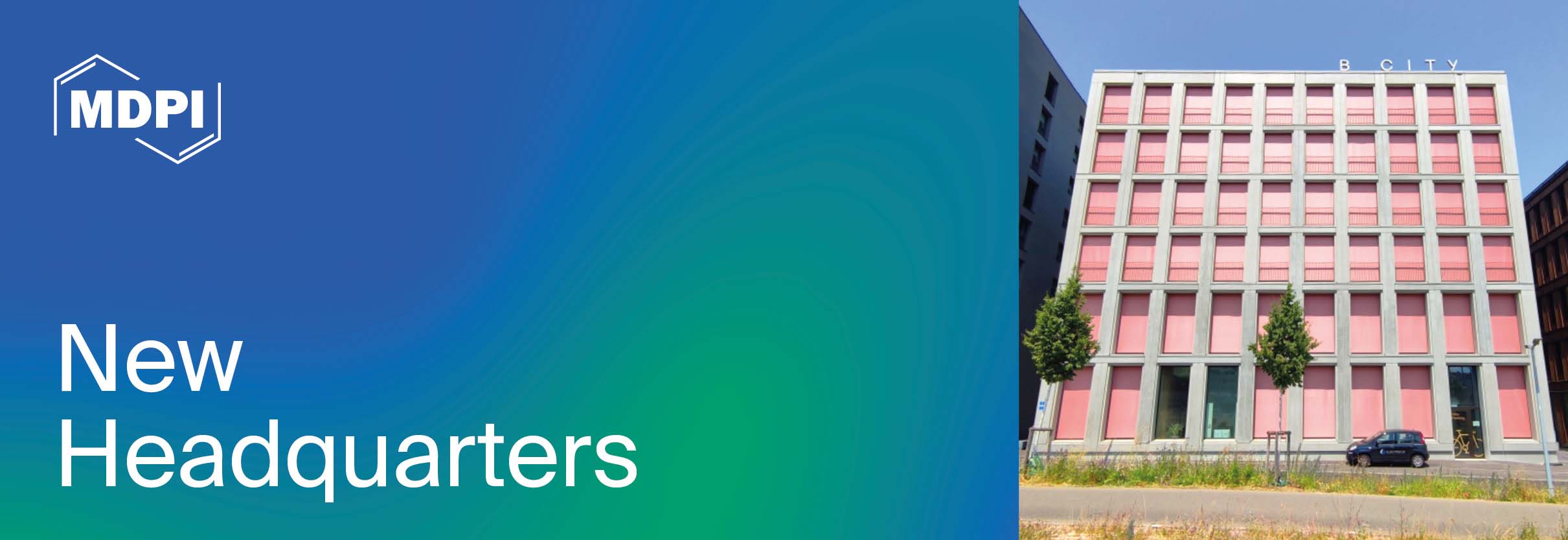
MDPI Moves to New Headquarters in Basel, Switzerland

I am excited to share that MDPI has moved to a new state-of-the-art office space in Basel, Switzerland. This move consolidates our operations by bringing together our two previously separated Basel offices into one central location.
We are always growing our talent pool and encourage you to view our Careers Page for the positions available in Basel and across our offices.
New Address: Grosspeteranlage 5, CH-4052 Basel, Switzerland
Effective Date: 1 July 2024
This new chapter in our company’s journey is designed to continue our mission of positioning MDPI as a leader in Open Access (OA) publishing, highlighting our commitment to making scholarly research accessible to everyone.

Boasting modern amenities, improved meeting and event spaces designed to support our growing needs, the new location provides a more collaborative and efficient working environment for our employees. The location offers convenient accessibility to public transportation and is situated near the Basel SBB railway station, with a variety of nearby services and amenities.
In fact, I can see the trains right outside of my window as I write these lines!
This move marks an exciting milestone in MDPI’s development, and I am confident that the new headquarters will serve as an inspiring and productive space for everyone. We also very much look forward to welcoming visitors here. You can read more about MDPI's history here.
“This new chapter continues our mission of positioning MDPI as a leader in OA publishing”
For Those New to MDPI
A pioneer in scholarly, Open Access publishing, MDPI has supported academic communities since 1996. MDPI is leading the transition to Open Science by making a greater proportion of the research conducted worldwide free and accessible to everyone. To date, over 3.5 million researchers have entrusted MDPI with publishing their scientific discoveries. MDPI’s editorial process is bolstered by a network of dedicated reviewers, a team of 6,000 professional, well-trained staff members, and an in-house article submission platform designed to ensure efficient processes within its 440 fully Open Access titles. MDPI supports more than 800 academic institutions worldwide, helping them adhere to national mandates while facilitating authors’ publication in fully compliant (CC BY) Open Access journals.
Impactful Research
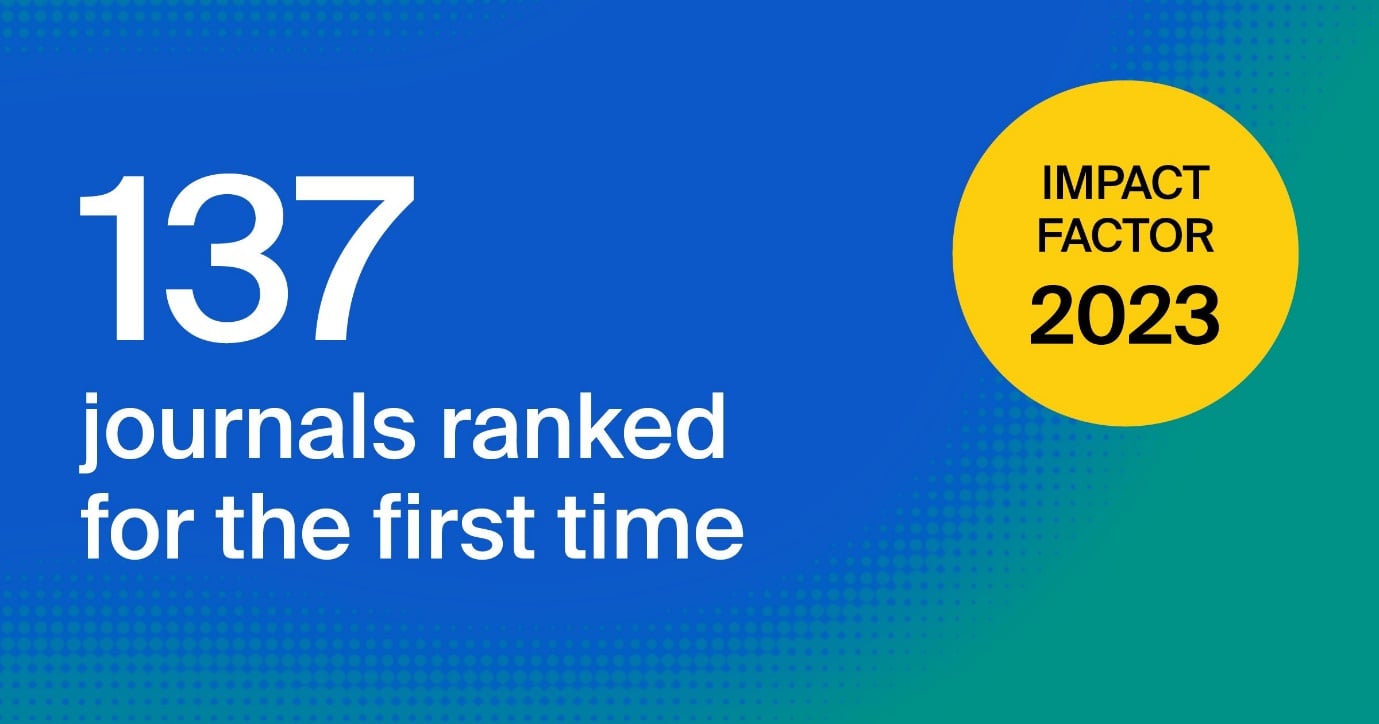
New and Emerging MDPI Journals Making an Immediate Impact
Unpacking some of the Impact Factor updates from the June CEO Letter, I wanted to dive a little deeper into the 137 MDPI journals which received Impact Factor for the first time.
Academic authors highly value efficient publishing processes, robust editorial support, and the opportunity to publish in high-impact journals. We are proud that our newly launched journals typically achieve coverage in the Emerging Sources Citation Index (ESCI) of the Web of Science within just a few years, with a median time of only three years from release to inclusion.
As part of our commitment to advancing academic research and providing high-quality OA publishing, we actively seek new research areas to expand our portfolio of journals. We have a proven track record of successfully establishing new journals.
Our dedicated teams excel in fostering dynamic editorial boards and working closely with Editors-in-Chief (EiC) to define the precise scope and focus of each new journal. Our expertise extends to collaborating with indexing services, ensuring that our journals comply with best practices and are indexed promptly in all relevant databases.
Emerging Titles Ranked for the First Time
Our commitment to excellence is reflected in the annual impact metrics released this past June. The latest edition of the Journal Citation Reports (JCR) showcases the integration of journals from the ESCI in the new unified category rankings, providing a simplified and more complete view of all journals within each subject category, including newly established titles.
Out of 137 new and developing MDPI journals ranked in the 2024 release, 79 are in the top half (Q1 or Q2) of their categories. Here is a breakdown of the number of MDPI’s ESCI-indexed journals by quartile in the JCR:
| Quartile | No. of journals |
| Q1 | 17 (12.4%) |
| Q2 | 62 (45.3%) |
| Q3 | 43 (31.4%) |
| Q4 | 15 (10.9%) |
| Not ranked (humanities-related journals) | 2 |
These rankings highlight our success in rapidly establishing high-impact new journals. Among those that made it directly into the top 25% of their category are the International Journal of Neonatal Screening, Journal of Xenobiotics, Polysaccharides, Smart Cities, and thirteen other journals.
You can browse MDPI journals by Indexing. Simply visit our Journals page and select from the list of Indexing bodies in the top left-hand corner.
Inside MDPI

MDPI Corporate Marketing Strategy and Team Meeting 2024
In July, I hosted the annual Corporate Marketing strategy and team-building activity with 15 of our team members.
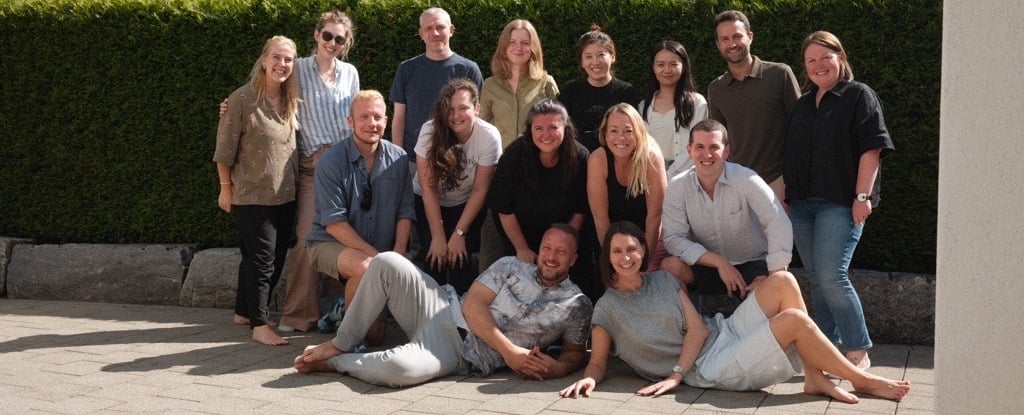
The aim was to align the Corporate Marketing strategy with MDPI's goal of becoming the world's most trusted OA publisher. While we provide a high-level publishing experience for our authors, as seen from our surveys, we need to keep building on our transparent and open communication to foster trust within the scholarly community and continue enhancing our reputation.
The Corporate Marketing team plays an important role as the mouthpiece for all our major activities within MDPI, especially those that model what it means to be a trusted partner. The purpose of the strategy meeting was to develop a feeling of trust in one another and an understanding of how to inspire trust in the stakeholders with whom we interact.
“We need to keep building on our transparent and open communication to foster trust within the scholarly community”

We conducted a set of activities to facilitate that sense of mutual trust and trustworthiness. Examples of some activities we worked on during this strategy-building event include:
- Exploring what trust means
- ‘Letter to self’
- ‘The brand I most trust’
- Most Trusted Academic Publisher
- ‘The brand I would like MDPI to become’
- ‘The 2029 MDPI Annual Report’
- Voice of Customer and Share of Voice – survey/data update on MDPI Brand Experience and Brand Perception
- Integrate Trust-Based Objective into Marketing Plan
- ‘Becoming the MDPI experience’
- ‘Trusting the next steps’
While two days is not enough to finalize a marketing strategy, it is sufficient to get everyone who attended into the mindset of the direction in which we are working. From here, we will develop a program with next steps on main projects, update communications, and collaborate with team leads to incorporate this approach into our work going forward.
As a marketing team, we can communicate our messages, but trust has to be built at every touchpoint in the stakeholder journey. Just talking about it isn’t enough. We need to be about it. That’s a role each of us plays, from editorial to IT, from marketing to HR. We must build trust from the inside out. It starts with each manager and resonates out via every team member.
As a company, our goal is to give all stakeholders with whom we interact – whether internal or external – the experience of working with an organization it can trust.
Coming Together for Science
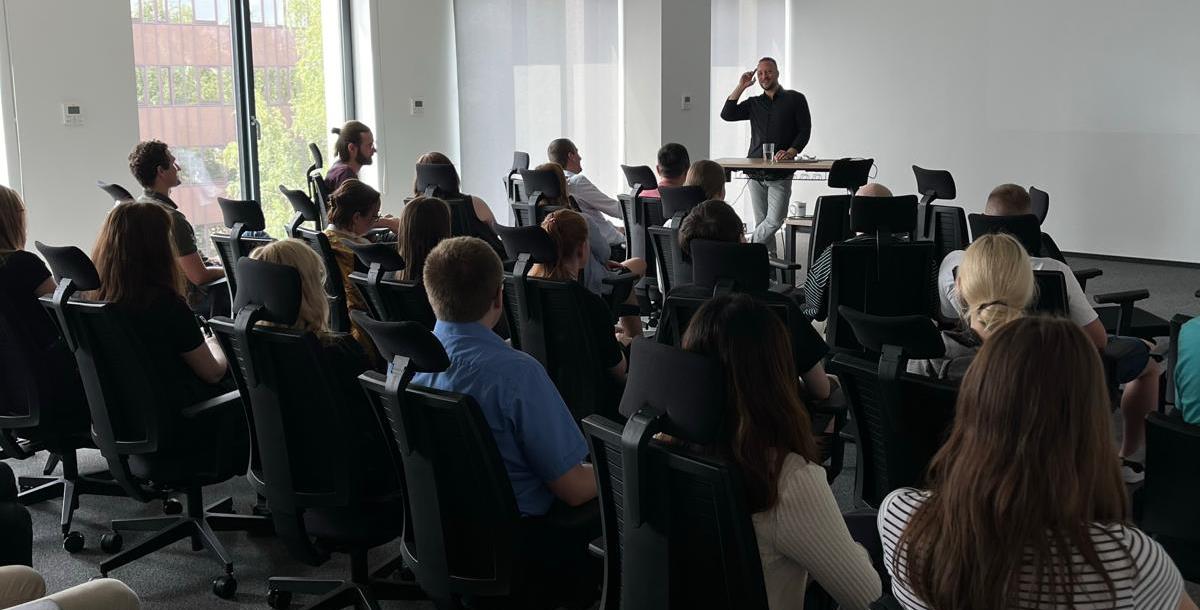
MDPI in Poland: Krakow Office
In July, I had the pleasure of visiting our Krakow office, following my recent trip to Warsaw to meet with the Polish Ministry of Science and Higher Education.

During these visits, I prioritized meeting with our Office Manager, Editorial Director, Group Leads, and members from various teams, including editorial, production, marketing, and journal relationship specialists, to understand their roles and current challenges. Instead of a formal presentation, I opted for an open discussion, sharing updates from headquarters to engage with colleagues in a more personal way.
Our Krakow office has many things to be proud of, including a large number of PhD colleagues (over a third of its staff holds a PhD degree). Krakow provides an opportunity for expanding beyond the 100 colleagues we currently have, by adding new hires in departments including editorial, production and marketing, among others.
About our Krakow office
- Opened in 2020
- 99 staff members as at 1 August 2024
- Main Departments include Editorial, Production, English Department, JRS, PR
Our Krakow office participates in international conferences, conducts author trainings and scholar visits, and engages in local market outreach. The office is also a member of the Polish Chamber of Commerce for High Technology (IZTECH) and is working on expanding its local engagement.
Krakow is the second-largest city in Poland, with a population of about 800,000. It also has a large student population of around 128,000, with seven universities. This means that roughly one in every eight residents is a student.
Poland and MDPI
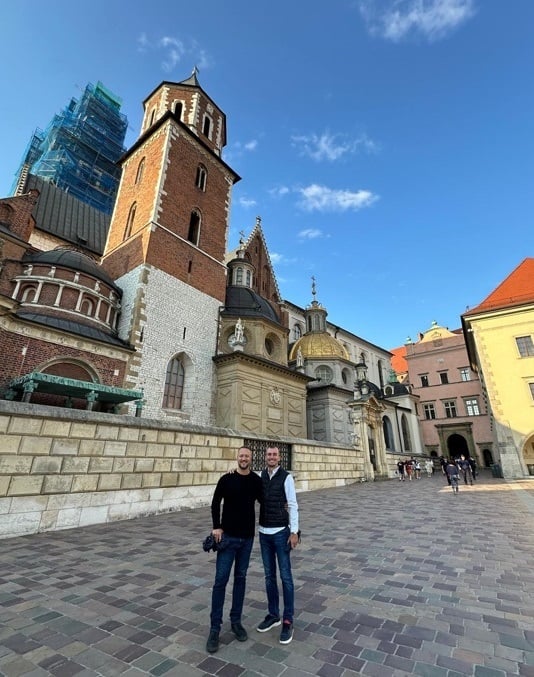
Poland is a crucial market for MDPI. From 2020 to June 2024, Poland ranked 7th in submissions and 5th in publications for MDPI research articles. As at 31 July 2024, Poland ranks 7th in total MDPI publications, with approximately 70,000 research papers.
Between 2020 and June 2024, 61,500 authors from Poland published with MDPI. As at 30 June 2024, there are 1,205 active Editorial Board Members (EBMs) from Poland, with 661 EBMs (55% of the total) having an H-index over 25.
We also have four Editors-in-Chief (EiC) from Poland leading our journals: Coatings, Venereology, Advances in Respiratory Medicine, and Limnological Review, along with six Section EiC.
In 2023, we received approximately 21,000 submissions from Polish-affiliated authors, of which 12,032 were published.
“Poland is a crucial market for MDPI”
Meeting with Ministry of Education

On 22 July, we visited Warsaw to meet with the Polish Ministry of Science and Higher Education.
We were pleased to learn that they are strong supporters of the OA publishing model and value MDPI’s approach to the peer-review process, including our high ethical standards for quality control.
In 2023 Polish authors predominantly published their papers in OA, with MDPI holding the largest market share in OA publications within the country.
Our commitment to collaborating with Polish institutions is evident through our 33 Institutional Open Access Program (IOAP) agreements with prestigious institutions such as the University of Warsaw, the University of Wroclaw, the Jagiellonian University, and Gdańsk University of Technology. Through IOAP discounts, a healthy waiver rate, and our peer-review voucher system, we provide the Polish scholarly community with significant savings in OA publishing. The Minister greatly appreciated these efforts and our commitment to offsetting some of the APC costs.
We discussed industry concerns about the threat of papermills and presented the preventive measures MDPI has in place to mitigate this risk and uphold high ethical standards. We informed them of our commitment to combating papermills, including our involvement with United2Act and the STM Research Integrity Hub, as well as our efforts to expand our research integrity team and explore proactive measures.
Closing Thoughts

MDPI Thought Leadership Op-ed on Open Access is Now Live on Politico
I am pleased to share that our thought leadership Op-ed piece on Open Access (OA) is now live on Politico. This is a nice push for continued influence and support of OA among policymakers and industry leaders.
Why Politico?
Politico's reputation as a highly credible and influential news platform makes it an important venue to reach key opinion leaders (KOL) from academia, policymakers, and thought leaders from many industries. This visibility helps promote the OA philosophy.
Open Access: A Moral Imperative for Progress
In this piece, I discuss the necessity of making scientific research freely available to all. I argue that publicly funded research should be publicly accessible, highlighting how OA democratizes scientific knowledge, accelerates research availability, and fosters collaboration.
“Open Access is a fundamental right for all citizens”
Democratizing scientific communication
The impulse to democratize scientific communication is nothing new. OA may seem like a recent innovation, but its principles have historical roots traceable to Europe in the 15th century. Just as the printing revolution accelerated the dissemination of new ideas, OA publishing unlocks new scientific insights that would otherwise only be accessible to a few.
Benefits for scholars: amplifying impact through Open Access
Authors publishing in an OA journal can expect more citations of their work, increasing its potential impact. Research findings that are freely available are more likely to be cited than those hidden behind a paywall. Freedom of access greatly increases the potential audience for each paper, fostering a sense of community among researchers worldwide. Heightened visibility can attract prospective collaborators and employers for young scientists. At MDPI, we believe that all these factors can only accelerate the advance of science. Additionally, authors retain copyright in their work instead of signing it away, permitting broader dissemination under Creative Commons licenses and increasing its capacity for impact.
The moral imperative
OA is not just a matter of scientific policy; it is a fundamental right for all citizens and a prerequisite for a brighter, more informed future. Publicly funded research should be a top priority, and I am pleased to see policy moving in this direction. Our capacity to generate transformative scientific insights has to be democratized. The question today is no longer whether we can afford to embrace OA; rather, it is whether we can afford not to.
Chief Executive Officer
MDPI AG
2 August 2024
MDPI Romania Author Training Sessions in May
In May, MDPI Romania held three author training sessions – one endorsing an external event and two stand-alone sessions.
The National Session of Scientific Student Communications took place at Technical University Cluj on 17 and 18 May 2024. MDPI Romania sponsored this event and contributed an author training session on the production of research papers and case study analyses. JRS Norbert Kiss gave a presentation called The World of Open Access to explain different open access publishing models and the benefits of open access publishing. His presentation highlighted the impact of open access publishing on scientific progress and innovation.
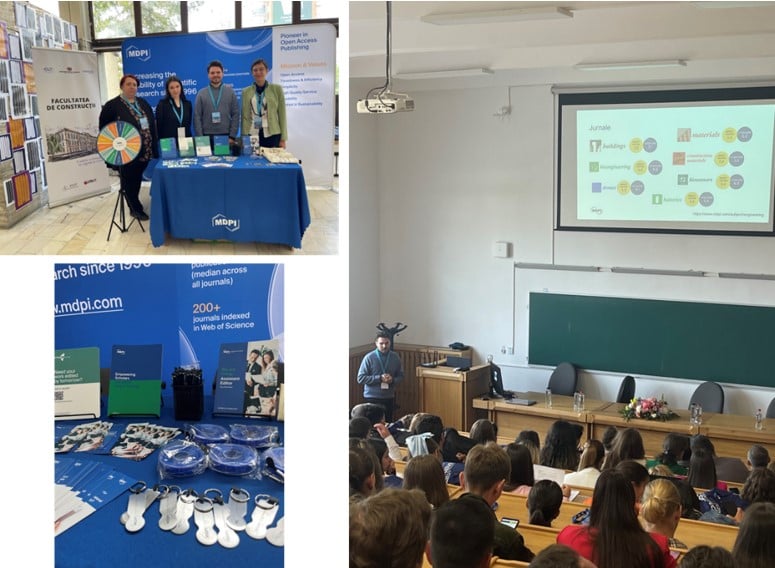
On 29 May 2024, MDPI Romania hosted an author training session for Ph.D. students, early career researchers, and professors at the Carol Davila University of Medicine and Pharmacy. In collaboration with Prof. Andreea Arsene, JRS Ioana Paunescu prepared two presentations: The Steps of the Publishing Process and Elaboration of a Peer Review Report. In her first presentation, she delved into MDPI’s history and mission, MDPI’s editorial process, and MDPI journals of various scopes that are accepting submissions. Her second presentation outlined the types of peer review, the contents of a peer review report by an MDPI reviewer, and the responsibilities of an MDPI reviewer.
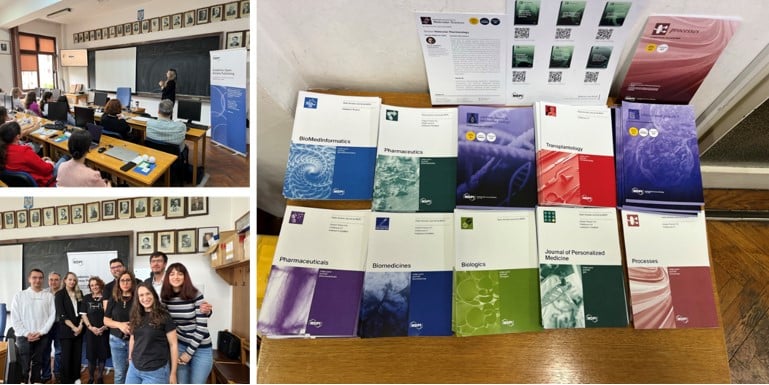
MDPI Romania also hosted an author training session at the Iasi University of Life Sciences on 29 May 2024. JRSs Laurentiu Preda and Cosmin Artan gave four presentations: Efficient Writing of an ISI-Indexed Scientific Article, Benefits of Publishing in the Open Access Model, Various Methods of Open Access Publishing, and MDPI Guide for the Article Review Process. The first three presentations offered guidance on how to improve academic writing, the fourth focused on how to write peer review reports. A highly interactive discussion followed the presentations, during which the JRSs provided extensive answers to attendees’ questions.
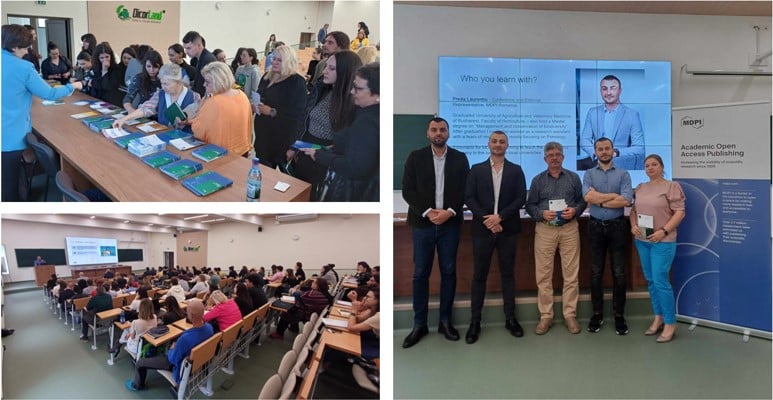
MDPI is grateful for all the attendees, speakers, and organizers involved in these events. Through their enthusiasm and dedication, these events were great successes.
29 July 2024
Prof. Dr. Marco Giorgetti Appointed Section Editor-in-Chief of Section “Battery Mechanisms and Fundamental Electrochemistry Aspects” in Batteries

We are pleased to announce the appointment of Prof. Dr. Marco Giorgetti as the new Section Editor-in-Chief of Batteries (ISSN: 2313-0105).
Name: Prof. Dr. Marco Giorgetti
Affiliation: Department of Industrial Chemistry, University of Bologna, Bologna, Italy
Interests: cathode and anode materials for advanced batteries; advanced electrodes for energy application; characterization of electrode materials; post-mortem analysis; core level spectroscopies; X-ray methods; Prussian blue analogs; post lithium batteries; aqueous batteries; synchrotron studies; data analysis
Prof. Dr. Marco Giorgetti leads the Spectroscopy Electrochemistry and Energy (S2C) group in the Department of Industrial Chemistry at the University of Bologna. His research interests cover the structural and electronic characterization of electrode materials and the solutions offered by core-level spectroscopies such as X-rays spectroscopies, applied electrochemistry, sensors, and the synthesis and electrochemical characterization of materials for advanced batteries. He has employed Prussian blue-based materials in potentiometric and amperometric sensors, ion exchange, and batteries. He has pioneered the in situ characterization of energy materials using the X-ray absorption synchrotron radiation technique, also becoming an expert in methodologies for data analysis. Prof. Dr. Giorgetti has coordinated more than 35 projects in synchrotron radiation facilities, is the local coordinator of the Erasmus Master’s course in Advanced Spectroscopy in Chemistry, and he is a member of BEPA (Battery European Battery Associations). He has served as a Guest Editor for two Special Issues in Batteries.
The following is a short Q&A with Prof. Dr. Marco Giorgetti, who shared his vision for the journal with us, as well as his views of the research area and open access publishing:
1. What appealed to you about the journal that made you want to take the role as its Section Editor-in-Chief?
The development and production of sustainable and efficient batteries is a strategic imperative for our society for both the mobility sector and grid-based energy storage systems. Batteries stands for excellence due to its commitment to high-quality, open access, peer-reviewed research in the field of energy storage. The opportunity to lead a Section that is rapidly evolving, such as “Battery Mechanisms and Fundamental Electrochemistry Aspects”, appealed to me strongly.
2. What is your vision for the journal?
Batteries should attract groundbreaking research and foster interdisciplinary collaboration by guaranteeing the rapid dissemination of findings. An increase in high-quality submissions will enhance its reputation at conferences and in other media. Batteries must also serve as a leading journal that confers clarity, scientific rigor, and innovative methodologies.
3. What does the future of this field of research look like?
The greatest current challenge is not only understanding the battery mechanism, but also controlling and designing electrode materials, interfaces and interphases for the development of ultra-performing, smart, and sustainable batteries. These aspects will be fully covered by this Section, where you will find papers in which basic and advanced electrochemical techniques, advanced characterization tools and computational methodologies are employed.
4. What do you think of the development of open access research in the publishing field?
Open access is not only a transformative development in academic publishing, but also a requirement for public funding. It democratizes knowledge by making research accessible to a broader audience, including scientists, industry professionals, policymakers, and the public. This accelerates the dissemination of scientific discoveries and removes barriers to knowledge. I strongly support open access publishing.
We wish Prof. Dr. Marco Giorgetti every success in his new position, and we look forward to his contributions to the journal.
26 July 2024
Interview with Dr. Yifan Zhao—Winner of the Batteries Outstanding Reviewer Award

Name: Dr. Yifan Zhao
Affiliation: Global Research and Development Center, General Motors, Warren, US
Research Interests: electrochemistry; energy storage materials and interphases; lithium sulfur batteries; lithium-ion batteries; solid-state electrolyte; and multivalent metal-ion batteries
Self-introduction:
Dr. Yifan Zhao is currently a researcher at the General Motors R&D center, Warren, Michigan. Dr. Zhao graduated from Zhejiang University, China with a bachelor’s degree and earned a master’s from the University of Southern California, USA. He obtained a Ph.D. from the University of California Riverside, USA, where he focused his work on lithium sulfur batteries. In GM R&D, his research is focused on advanced energy-storage materials and interphase studies.
The following is an interview with Dr. Yifan Zhao:
1. Could you briefly introduce yourself to our readers and tell us a little bit about your fields of interest?
I presently serve as a researcher at General Motors R&D center, located in Warren, Michigan. My academic journey began at Zhejiang University, where I earned my bachelor's degree, followed by a master's degree from the University of Southern California. Subsequently, I obtained my Ph.D. in Material Science and Engineering from the University of California, Riverside, focusing my research on lithium sulfur batteries.
Within GM R&D, my focus lies in investigating advanced energy-storage materials and interphase studies, with the overarching goal of enabling higher-energy-density, lower-cost, and safer batteries for electric vehicles.
I am interested in lithium metal batteries, lithium sulfur batteries, and other advanced high-energy-density or low-cost active materials and solid-state electrolytes.
2. Could you elaborate on how you initially learned about the Batteries journal? Furthermore, what inspired you to apply for the Batteries 2023 Outstanding Reviewer Award?
When I read and write papers, I always come across the Batteries journal. Many of its articles are of great interest to me. I was honored to serve as a peer reviewer for the Batteries journal. I enjoy the reviewing process because it allows me to see the latest articles first, provide my suggestions, and engage in academic discussions with the authors.
3. Which research topics do you think will be of particular interest to the research community in the coming years?
In the realm of battery-related research, my focus lies in exploring the realms of low-cost, fast-charging, and safe next-generation batteries, whether at the material, cell, or pack level, and this will captivate my interest for the foreseeable future. These include Na-ions, sulfur-based cathodes, solid-state batteries, etc. These areas of study are already ablaze with activity, emerging as prominent topics of discussion. Other than that, since AI is pretty powerful in tools used in daily life, studies on AI-empowered batteries will also be interesting.
4. What is your opinion of the open access model of publishing?
When I was in university, I had access to all publications without understanding the concept of open access (OA). I held biases against OA journals, assuming some lacked quality. However, upon starting my career in the industry, my perspective shifted. I realized that OA does not equate to poor quality. I began to appreciate the advantages of open access publications.
As a reader, OA enables unrestricted access to research, anytime and anywhere, at no cost. There is no need for VPN access or payment, making it more accessible. As an author, there are also benefits. OA enhances the impact of research through increased citations, readings, and downloads.
5. Which qualities do you think reviewers need? Do you have anything to say to other reviewers?
Firstly, professionalism is paramount. Reviewers must be experts in their field to offer suggestions and judgments from a professional standpoint. Their feedback should genuinely enhance the manuscript. I understand that receiving revision requests as an author can be frustrating, especially if they lack relevance or professionalism. Such requests waste authors' time and can diminish the journal's impact on the author.
Secondly, timeliness is essential. Authors often have publication deadlines to meet, and reviewers should not cause unnecessary delays.
Thirdly, critical thinking is crucial. Reviewers need strong critical thinking skills to thoroughly evaluate the methodology, results, and conclusions of the manuscript. They should identify both the strengths and weaknesses, offering constructive feedback for improvement.
6. What do you think are the main criteria that should be taken seriously in the process of reviewing manuscripts?
Originality, significance, and the interest to readers is most important. Other than that, the logical flow, and whether the conclusion is supported by content and references, also need to be considered.
7. What’s the secret to a happy scientific life? Have you ever encountered any difficulties conducting research, and how did you overcome them?
No expectation is the best expectation. Before an experiment, I usually do not keep positive hopes for the result, so that I will not be disappointed by the result. And finding a way to keep a work–life balance is also important to keeping a happy scientific life. Overcoming difficulties in research is no different to overcoming difficulties in life. Take it easy, do more literature research, ask for help, take a break, and work hard.
10 July 2024
MDPI's Newly Launched Journals in June 2024
 Five new journals covering multiple subjects have launched their inaugural issue in June 2024. We are excited to be able to share with you the newest research rooted in the value of open access.
Five new journals covering multiple subjects have launched their inaugural issue in June 2024. We are excited to be able to share with you the newest research rooted in the value of open access.
We would like to express our deepest appreciation to all the Editorial Board Members and each journal will ensure its high-quality output using excellent editorial and rigorous peer review processes, to ensure that the articles achieve high impact and visibility.
Please feel free to browse and discover more about the new journals below.
|
Journal |
Founding Editor-in-Chief |
Journal Topics (Selected) |
 |
Prof. Dr. Marco Ranucci, IRCCS Policlinico San Donato, Italy |
anaesthetic medications; blood and fluid management; pain management; critical care; critical illness | view journal scope | submit an article |
 |
Dr. Giovanni E. Cacciamani, University of Southern California, USA |
surgical/procedural complications; complications; perioperative adverse events; postoperative adverse events | view journal scope | submit an article |
 |
Prof. Dr. Gassan Hodaifa, Universidad Pablo de Olavide, Spain |
laboratory management; laboratory safety; protective equipment; laboratory problems and challenges; laboratory Innovation | view journal scope | submit an article |
 |
Prof. Dr. Jan S. Suchodolski, Texas A&M University, USA |
companion animals health and disease; veterinary care and nutrition; genetics and genomics; behavior and welfare; human-animal relations | view journal scope | submit an article |
 |
Prof. Dr. Pierfrancesco De Paola, University of Naples Federico II, Italy |
real estate appraisal; economic and financial valuation of real estate projects; sustainable real estate; housing and urban economics | view journal scope | submit an article |
We wish to thank everyone who has supported the development of open access publishing. You are welcome to send an application here, or contact the New Journal Committee (newjournal-committee@mdpi.com) if you would like to create more new journals.
29 June 2024
Batteries | Aims and Scope Update
To further enhance the quality of Batteries (ISSN: 2313-0105) and the papers published in it, under the guidance of our Editor-in-Chief, Prof. Dr. Karim Zaghib, the journal has updated and revised its aims and scope. The original scope and the updated version are listed below:
|
Scope (New Version): |
Scope (Old Version): |
|
This journal covers all topics related to batteries and electrical energy storage systems. All electrochemical systems, such as lithium-ion, lead–acid, nickel metal hydride, metal–air, and next-generation batteries, supercapacitors, or fuel cells, are of interest. Papers can be related to applications, for example, portable, electric vehicles, stationary, or photovoltaic, or they can be independent of an application. Topics of interest include, but are not limited to, the following:
|
This journal covers all topics related to batteries and electrical energy storage systems. All electrochemical systems, such as lithium-ion, lead–acid, nickel metal hydride, metal–air, and next-generation batteries or supercapacitors, are of interest. Papers can be related to applications, for example, portable, electric vehicles, stationary, or photovoltaic, or they can be independent of an application. Topics of interest include, but are not limited to, the following:
|
For more detailed information, please visit the following link: https://www.mdpi.com/journal/batteries/about.
Batteries Editorial Office
23 June 2024
Batteries Receives an Updated Impact Factor of 4.6 and CiteScore of 4.0

We are pleased to share that Batteries (ISSN: 2313-0105) was awarded an increased Impact Factor of 4.6 in the 2023 Journal Citation Reports™ released by Clarivate in June 2024. Additionally, according to data released by Scopus (Elsevier), Batteries received a CiteScore™ of 4.0.
Batteries’ Impact Factor ranks are as follows:
- Q2 (16 among 45 titles) in the “Electrochemistry” category;
- Q2 (78 among 170 titles) in the “Energy and Fuels” category;
- Q2 (141 among 438 titles) in the “Materials Science, Multidisciplinary” category.
Batteries’ CiteScore ranks are as follows:
- Q2 (110 out of 272 journals) in the “Energy Engineering and Power Technology” category;
- Q2 (333 out of 797 journals) in the “Electrical and Electronic Engineering” category;
- Q3 (35 out of 60 journals) in the “Electrochemistry” category.
|
4.62023 Impact Factor |
16/45 (Q2)Electrochemistry |
4157Citations in 2023 |
|
4.02023 CiteScore |
110/272 (Q2)Energy Engineering and Power Technology |
1.003SNIP |
For further statistics, please visit https://www.mdpi.com/journal/batteries/stats. For more information about MDPI flagship journals' citation metrics, please see here.
At MDPI, our mission is simple yet powerful, and we strive every day to make scientific research freely accessible to everyone everywhere. With over 3.5 million authors choosing MDPI, we have established ourselves as a key player driving the open access initiative.
Our journals have received over 13 million citations in the Web of Science, making us the most cited open access publisher. With over 800 institutional partners, MDPI continues to demonstrate its dedication to providing reliable and collaborative publishing services.
Batteries Editorial Office
21 June 2024
Meet Us at the IX Symposium on Hydrogen, Fuel Cells and Advanced Batteries (HYCELTEC 2024), 30 June–3 July 2024, Milazzo, Italy

MDPI will attend the IX Symposium on Hydrogen, Fuel Cells and Advanced Batteries (HYCELTEC 2024), held from 30 June to 3 July 2024 in Milazzo, Italy.
HYCELTEC 2024 will be an interdisciplinary forum for the discussion of topics related to fuel cells, hydrogen and batteries, bringing together researchers from academia, technological centers and industry.
The following MDPI journals will be represented:
Energies;
Hydrogen;
WEVJ;
Batteries;
Polymers.
If you plan to attend this conference, we invite you to visit our booth and converse with our delegates. We are excited to meet you in person and address any questions you may have. For further details about the conference, please visit the following website: https://www.hyceltec2024.it/.
21 June 2024
Batteries 2022 Best Paper Award Announcement and Interview with Dr. Yang Zhang, One of the Winners
All papers published in 2022 in Batteries (ISSN: 2313-0105) were considered for this award. After a thorough evaluation of the originality and significance of the papers, citations, and downloads, the winner was selected:
“Revisiting Polytetrafluorethylene Binder for Solvent-Free Lithium-Ion Battery Anode Fabrication”
by Yang Zhang, Frederik Huld, Song Lu, Camilla Jektvik, Fengliu Lou and Zhixin Yu
Batteries 2022, 8(6), 57; https://doi.org/10.3390/batteries8060057
The winners will receive CHF 500 and a chance to publish a paper free of charge after peer review in Batteries in 2024.
Author names: Yang Zhang, Frederik Huld, Song Lu, Camilla Jektvik, Fengliu Lou and Zhixin Yu
Affiliation: Beyonder As and University of Stavanger
Research Interests: solvent-free electrode manufacturing, prelithiation, high-energy-density LiBs, extra-fast-charge technology, LiBs failure analysis, etc.
The following is a short interview with the first author Dr. Yang Zhang:

1. Could you give a brief introduction of yourself to the readers?
My name is Yang Zhang and I obtained my Ph.D. from the University of Stavanger (UiS), Norway in 2023. This work is part of my industrial Ph.D. project, which is a collaboration between UiS and Beyonder AS, Norway, aimed at developing a technology for the large-scale production of electrodes using a solvent-free method. We hope that the technology developed in this project can be applied to Beyonder's battery products, reducing energy consumption in the battery production process while enhancing battery performance. Our team members are from both UiS and Beyonder AS.
2. Could you please briefly introduce the main content of the winning paper?
Our award-winning paper, titled “Revisiting Polytetrafluorethylene Binder for Solvent-Free Lithium-Ion Battery Anode Fabrication”, explores an innovative solvent-free process for creating anode electrodes in lithium-ion batteries. The process was conducted in a roll-to-roll way, which can be scaled up for production. We utilized polytetrafluoroethylene (PTFE) as a binder and elucidated the root cause of the fast-capacity-fading PTFE-based anode, primarily due to the irreversible reaction between PTFE and lithium ions at a low potential. This insight is crucial to enhancing the performance and lifespan of LiBs with anodes using PTFE as a binder. Based on our understanding of the degradation mechanism, hard carbon was adopted as the anode’s active material, achieving a decent stability performance. Our work shed light on the development of PTFE-based solvent-free anodes with a longer cycling life.
3. What is your current research and why did you choose this research field?
My current research is focused on solvent-free electrodes’ manufacturing. I chose this field because it offers a sustainable approach to battery manufacturing with the potential to significantly improve energy density and energy consumption savings during the electrode manufacturing process, critical to the advancement of electric vehicles and renewable energy storage. Also, all-solid-state batteries are considered the “holy grail” of battery technology, which can increase energy density and address safety issues at the same time. Solvents from technology will also play a pivotal role in all-solid-state batteries’ manufacturing.
4. Which research topics do you think will be of particular interest to the research community in the coming years?
In the coming years, I anticipate that research topics such as all-solid-state batteries (ASSB), lithium-rich manganese-layered oxide (LRM) cathode materials, and lithium metal batteries will gain significant interest. These areas are pivotal in achieving highly safer battery technologies and improved energy densities, which are essential for the next generation of electric vehicles and energy storage systems.
5. What appealed to you about the journal that made you want to submit your paper? What benefits do you think authors can gain when publishing their articles in Batteries?
We chose to submit our paper to the Batteries journal because it is a reputable, open access platform that covers a wide spectrum of topics within battery science. Publishing in Batteries offers authors the benefit of reaching a broader audience and increasing the visibility of their work, which is essential for the dissemination of scientific findings and fostering collaboration within the research community.
6. How was your experience submitting to Batteries?
Our experience with submitting to Batteries has been very positive. The editorial team and peer reviewers provided constructive feedback that helped us refine our manuscript. The review process was efficient and professional and greatly contributed to the final quality of our paper.
7. Can you briefly describe the key to a happy laboratory life? Have you ever encountered any difficulties conducting research and how did you overcome them?
The key to a fulfilling laboratory life is fostering a collaborative environment and maintaining a positive atmosphere. When faced with research challenges, we rely on team discussions, interdisciplinary cooperation, and the collective expertise of our members to find innovative solutions.
8. We are an open access journal. How do you think open access impacts the authors?
Open access has a profound impact on authors by democratizing access to research. It allows our work to be freely available to a global audience, facilitating the exchange of ideas and accelerating scientific progress. This model supports the broader scientific community by making research more accessible and transparent. However, while the open access model allows our research to reach a wider audience, the initial publication fees can be a burden for researchers, especially for young investigators. If these costs could be reduced, I believe researchers would be more inclined to publish their work in open access journals to reach a larger readership.
9. As the winner of this award, is there something you want to express or someone you wish to thank most?
Winning this award is a testament to the hard work and dedication of myself and my colleagues at UiS and Beyonder AS. I am particularly grateful to my collaborators for their invaluable contributions and to the families, who have supported us throughout this journey. Their support has been instrumental in achieving this recognition. Additionally, the main body of this research work was conducted at Beyonder AS, and I would like to express my special gratitude to them for the convenience and support they provided for my research.
21 June 2024
Batteries 2022 Best Paper Award Announcement and Interview with One of the Winners—Prof. Karim Zaghib
All papers published in 2022 in Batteries (ISSN: 2313-0105) were considered for the Batteries 2022 Best Paper Award. After a thorough evaluation of the originality and significance of the papers, citations, and downloads, the winner was selected:
“Recent Development in Carbon-LiFePO4 Cathodes for Lithium-Ion Batteries: A Mini Review”
by Brindha Ramasubramanian, Subramanian Sundarrajan, Vijila Chellappan, M. V. Reddy, Seeram Ramakrishna and Karim Zaghib
Batteries 2022, 8(10), 133; https://doi.org/10.3390/batteries8100133
Available online: https://www.mdpi.com/2313-0105/8/10/133
The winners will receive CHF 100 and a chance to publish a paper free of charge after peer review in Batteries in 2024.
Information of authors:
Name: Brindha Ramasubramanian
Affiliation: Center for Nanotechnology and Sustainability, Department of Mechanical Engineering, National University of Singapore, Singapore 117574, Singapore
Research Interests: nanomaterials, electrochemistry, batteries, machine learning and sustainability
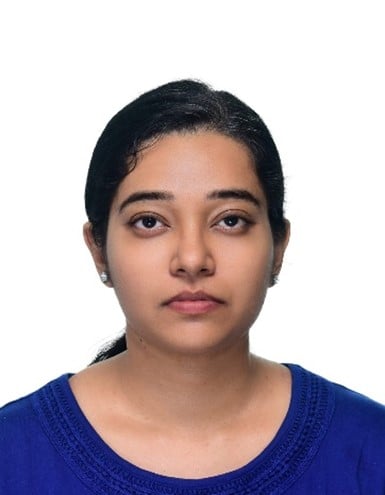
Self-introduction:
I am currently a Ph.D. student at the National University of Singapore (NUS) | SINGA Awardee & Scholar at the Institute of Materials Research and Engineering (IMRE), Agency of Science, Technology, and Research, Singapore (A*STAR). My primary research interests include synthesis of 2D hybrid nanomaterials, next-generation batteries, electrochemistry and circular economy in product development.
Name: Subramanian Sundarrajan
Affiliation: Center for Nanotechnology and Sustainability, Department of Mechanical Engineering, National University of Singapore, Singapore 117574, Singapore
Research Interests: polymer chemistry, heat exchangers, nanofibers and energy storage

Self-introduction:
I graduated with an M.Sc. in Inorganic Chemistry from the University of Madras, India, in 1996, and I was awarded one of the most prestigious fellowships in India, ‘‘Senior Research Fellow’’, by CSIR before completing my Ph.D. at the University of Madras in 2003. I joined the National University of Singapore in 2003 and have worked on the synthesis of polymers and the electrospinning of nanofibers, investigating their applications in battery, air, water, and tissue engineering, as well as clean and sustainable energy.
Name: Vijila Chellappan
Affiliation: Institute for Functional Intelligent Materials, National University of Singapore, Singapore 117574, Singapore
Research Interests: optoelectronics, intelligent materials, sustainable energy storage devices, high throughput experimentation and machine learning

Self-introduction:
I am currently a Senior Research Fellow at the Institute for Functional Intelligent Materials, National University of Singapore, with over 20 years of experience in examining various device technologies (photovoltaics, displays, lasers, energy storage), material systems (semiconducting polymers, oxides, transition metal dichalcogenides, conducting composites), and transient optical/electrical spectroscopy techniques. I have also helped establish high-throughput optical methodologies for machine-learning-enabled process/property optimization. I received my Ph.D. degree in physics from the Anna University, India, in 2001 and carried out postdoctoral research at Åbo Academy University, Turku, Finland, from 2001 to 2002.
Name: M. V. Reddy
Affiliation: Nouveau Monde Graphite, 481 Rue Brassard, Saint-Michel-de-Saints, QC J0K 3B0, Canada
Research Interests: nanomaterials, electrochemistry and batteries

Self-introduction:
I am currently working as a Senior Professional Researcher at Nouveau monde Graphite, Quebec, Canada. For the last 20 years, I have been working on materials for energy storage, such as cathodes, anodes, and solid electrolytes for Li/Na/K- ion batteries and supercapacitors. I am also a member of ICDD USA, IPS, and MRS Singapore, and I have won many awards and given 230 talks all over the world.
Name: Seeram Ramakrishna
Affiliation: Center for Nanotechnology and Sustainability, Department of Mechanical Engineering, National University of Singapore, Singapore 117574, Singapore
Research Interests: biomaterials, circular economy, nanofibers, electrospinning, energy storage and wearables

Self-introduction:
I am currently a professor at the National University of Singapore and among the World’s Most Influential Minds (Thomson Reuters). My current research interests include circular economy, electrospinning, next generation electronic devices and wearables.
Name: Karim Zaghib
Affiliation: Department of Chemical and Materials Engineering, Concordia University, 1455 Boulevard de Maisonneuve, Montréal, QC H3G 1M8, Canada
Research Interests: nanomaterials, electrochemistry, batteries

Self-introduction:
I am currently a professor of chemical and materials engineering at Concordia University. As former director of research at Hydro-Québec, my research interests include rechargeable batteries, electrochromic devices, and electrochemistry of carbon materials.
The following is an interview with Prof. Karim Zaghib:
1. Could you please briefly introduce the main content of the winning paper?
This review presents state-of-the-art research on the significance of carbon addition to LiFePO4 cathodes in lithium-ion batteries during the time when it was published. We have discussed recent advancements and future prospects in this area and the impact of carbon incorporation on the structural and electrochemical properties of LiFePO4. Aspects of carbon, such as size, shape, diffusion, bonding, additives, dopants, and surface functionalization, and their effects on LiFePO4 cathodes were explained, along with prospects for future advancements in LIB LiFePO4 technology.
2. What’s your current research and why did you choose this research field?
M. V. Reddy is working in the area of anode materials and energy storage materials, and Brindha Ramasubramanian and Seeram Ramakrishna are working on 2D nanomaterials and carbon for Li-ion and Al-ion storage.
3. Could you describe the difficulties and breakthrough innovations in this research field?
One of the major challenges in LiFePO4 and LIBs is electrode degradation over repeated charge–discharge cycles, capacity fade and reduced battery lifespan. Other challenges in LIBs include low lithium diffusion, dendrites and volume changes. Nanostructuring LiFePO4 particles and carbon coatings improves lithium diffusion kinetics, while doping strategies and nanomaterials enhance conductivity and ion transfer. Surface modifications, like coatings and functionalization, can help to optimize surface chemistry and lithium-ion diffusion in LiFePO4 carbon electrodes.
4. Have you ever encountered any difficulties while conducting research? How did you overcome them?
Initially, we encountered challenges in establishing the lab and optimizing parameters for materials synthesis and characterization. After a series of trial-and-error methods, we were finally able to resolve these issues.
5. Which research topics do you think will be of particular interest to the research community in the coming years?
Several research topics are likely to capture the interest of the research community in the coming years in the field of Li-ion batteries, some of those are Solid-State LIBs, Si anodes for LIBs, artificial SEI and beyond Li-ion chemistry such as Na-ion and Al-ion chemistries.
6. What appealed to you about the journal that made you want to submit your paper? What benefits do you think authors can gain when publishing their articles in Batteries?
Batteries is a specialized journal in this field, with Prof. Karim and Dr. M. V. Reddy serving on its Editorial Board. It presents an excellent opportunity for us to submit our paper to this open access journal. We received positive feedback, and the publication process was swift. After our review was published, it was widely read by many authors and garnered a significant number of citations.
7. How was your experience submitting to Batteries?
We had a smooth, fast and constructive experience when submitting to Batteries.
8. Do you have any advice for aspiring young researchers looking to make a meaningful impact in their respective fields?
Making an impact in any research field requires dedication, hard work, and a commitment to lifelong learning and growth. Staying passionate, curious, and persistent with critical thinking will help aspirants to have profound contributions to science and society.
9. Can you briefly describe the key to a happy laboratory life? Have you ever encountered any difficulties conducting research and how did you overcome them?
The key to a happy laboratory life revolves around fostering a supportive, collaborative, and positive work environment. As for difficulties in conducting research, challenges are common in scientific research. Whether it's encountering unexpected results, experimental failures, funding setbacks, or interpersonal conflicts, overcoming obstacles is an inherent part of the research process. Seeking guidance and advice from mentors, troubleshooting methodically, staying resilient in the face of setbacks, and maintaining a positive attitude will help to overcome the challenges.
10. We are an open access journal. How do you think open access impacts the authors?
Yes, open access has a huge impact.
11. As the winner of this award, is there something you want to express, or someone you would like to thank most?
Thanks to the MDPI Batteries team for their efforts in selecting our review for this award.



